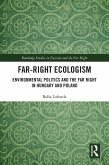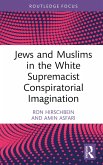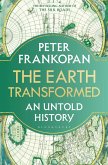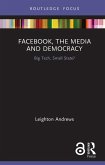Dieser Download kann aus rechtlichen Gründen nur mit Rechnungsadresse in A, B, BG, CY, CZ, D, DK, EW, E, FIN, F, GR, HR, H, IRL, I, LT, L, LR, M, NL, PL, P, R, S, SLO, SK ausgeliefert werden.
Jonathan Olsen, Professor and Chair, Department of Social Sciences and Historical Studies, Texas Woman's University, USA
'I believe Balsa Lubarda's book promises to be a very significant contribution. It applies a fitting theoretical approach to rich empirical research on a topic of growing importance: far right thinking about the environment. He points to themes with popular appeal, that cross-sect the usual rural-urban, social class divides, and moderate-radical divides. He also points to opportunities but also problems of building bridges across the political divide to gather broad support for green measures.'
Arlie Russell Hochschild, Professor Emerita, Department of Sociology, University of California, Berkeley, USA









